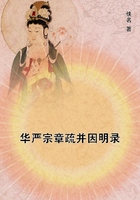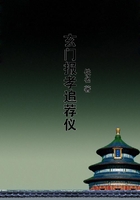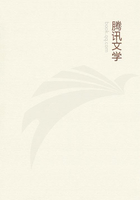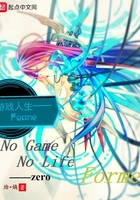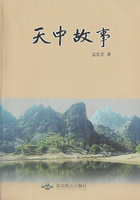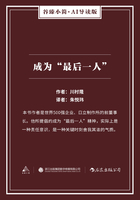Whatever has reference to the general inclinations and wants of mankind has a market value; whatever, without presupposing a want, corresponds to a certain taste, that is to a satisfaction in the mere purposeless play of our faculties, has a fancy value; but that which constitutes the condition under which alone anything can be an end in itself, this has not merely a relative worth, i.e., value, but an intrinsic worth, that is, dignity.
Now morality is the condition under which alone a rational being can be an end in himself, since by this alone is it possible that he should be a legislating member in the kingdom of ends. Thus morality, and humanity as capable of it, is that which alone has dignity. Skill and diligence in labour have a market value; wit, lively imagination, and humour, have fancy value; on the other hand, fidelity to promises, benevolence from principle (not from instinct), have an intrinsic worth. Neither nature nor art contains anything which in default of these it could put in their place, for their worth consists not in the effects which spring from them, not in the use and advantage which they secure, but in the disposition of mind, that is, the maxims of the will which are ready to manifest themselves in such actions, even though they should not have the desired effect. These actions also need no recommendation from any subjective taste or sentiment, that they may be looked on with immediate favour and satisfaction: they need no immediate propension or feeling for them; they exhibit the will that performs them as an object of an immediate respect, and nothing but reason is required to impose them on the will; not to flatter it into them, which, in the case of duties, would be a contradiction. This estimation therefore shows that the worth of such a disposition is dignity, and places it infinitely above all value, with which it cannot for a moment be brought into comparison or competition without as it were violating its sanctity.
What then is it which justifies virtue or the morally good disposition, in making such lofty claims? It is nothing less than the privilege it secures to the rational being of participating in the giving of universal laws, by which it qualifies him to be a member of a possible kingdom of ends, a privilege to which he was already destined by his own nature as being an end in himself and, on that account, legislating in the kingdom of ends; free as regards all laws of physical nature, and obeying those only which he himself gives, and by which his maxims can belong to a system of universal law, to which at the same time he submits himself. For nothing has any worth except what the law assigns it. Now the legislation itself which assigns the worth of everything must for that very reason possess dignity, that is an unconditional incomparable worth; and the word respect alone supplies a becoming expression for the esteem which a rational being must have for it. Autonomy then is the basis of the dignity of human and of every rational nature.
The three modes of presenting the principle of morality that have been adduced are at bottom only so many formulae of the very same law, and each of itself involves the other two. There is, however, a difference in them, but it is rather subjectively than objectively practical, intended namely to bring an idea of the reason nearer to intuition (by means of a certain analogy) and thereby nearer to feeling. All maxims, in fact, have:
1. A form, consisting in universality; and in this view the formula of the moral imperative is expressed thus, that the maxims must be so chosen as if they were to serve as universal laws of nature.
2. A matter, namely, an end, and here the formula says that the rational being, as it is an end by its own nature and therefore an end in itself, must in every maxim serve as the condition limiting all merely relative and arbitrary ends.
3. A complete characterization of all maxims by means of that formula, namely, that all maxims ought by their own legislation to harmonize with a possible kingdom of ends as with a kingdom of nature.* There is a progress here in the order of the categories of unity of the form of the will (its universality), plurality of the matter (the objects, i.e., the ends), and totality of the system of these. In forming our moral judgement of actions, it is better to proceed always on the strict method and start from the general formula of the categorical imperative: Act according to a maxim which can at the same time make itself a universal law. If, however, we wish to gain an entrance for the moral law, it is very useful to bring one and the same action under the three specified conceptions, and thereby as far as possible to bring it nearer to intuition.
*Teleology considers nature as a kingdom of ends; ethics regards a possible kingdom of ends as a kingdom nature. In the first case, the kingdom of ends is a theoretical idea, adopted to explain what actually is. In the latter it is a practical idea, adopted to bring about that which is not yet, but which can be realized by our conduct, namely, if it conforms to this idea.
We can now end where we started at the beginning, namely, with the conception of a will unconditionally good. That will is absolutely good which cannot be evil- in other words, whose maxim, if made a universal law, could never contradict itself. This principle, then, is its supreme law: "Act always on such a maxim as thou canst at the same time will to be a universal law"; this is the sole condition under which a will can never contradict itself; and such an imperative is categorical. Since the validity of the will as a universal law for possible actions is analogous to the universal connexion of the existence of things by general laws, which is the formal notion of nature in general, the categorical imperative can also be expressed thus: Act on maxims which can at the same time have for their object themselves as universal laws of nature. Such then is the formula of an absolutely good will.

